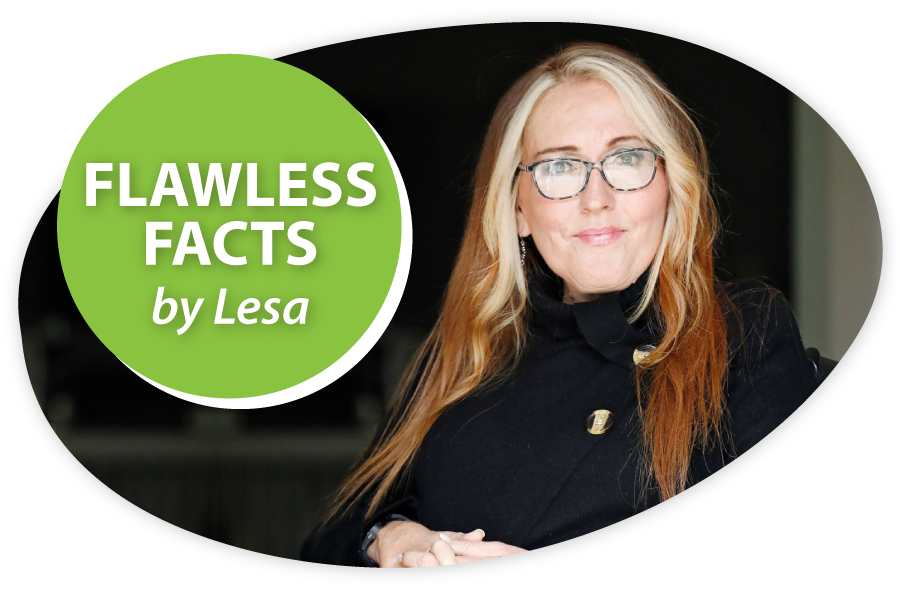A Series of “Flawless Facts” by Lesa Bradshaw – Topic 7
I recently had the pleasure of listening to an audiobook by Rich Donovan called Unleash Different. Like me, Rich is both a person with a disability and a business professional, who approaches Disability Inclusion from a Business perspective, showcasing the impact of disability as a form of diversity on the customer experience. His reference to the market of consumers with a disability and their direct networks of influence equating to an untapped market the size of China really hit home!
With the upcoming festive season, what do we do as consumers? We shop furiously! I have thus focussed this blog article on the Retail Sector as an industry which is primed to reap the rewards of disability inclusion.
Within the retail sector, the employment of persons with a disability not only comes with the benefits of a diverse workforce, but has a significant impact on the Company’s ability to understand the needs of their customers with a disability. However, a common concern amongst retail sector employers is the conditions and nature of work within the environment which presents many barriers for employees with a disability. Whilst there are undoubtedly some challenges presented when implementing inclusion strategies, it is possible to overcome these hurdles with greater awareness and the application of flexible practices. Common denominators to success include Leadership commitment, Management support and accountability, and Employee empowerment.
Leadership commitment, like any transformation process, involves a commitment to a well-considered inclusion strategy. It also includes ensuring that the necessary resources are available to promote a disability inclusive culture, including training, reasonable accommodation measures, facilities planning, empowerment programmes, and communication strategies which promote the normalisation of disability as just another form of diversity. Full inclusion of employees with a disability is only sustainably achieved through a multidimensional approach to ensure equal treatment in all aspects of employment.
Management support and accountability involves creating an empowered management team who understand disability inclusion from a business value-add perspective, and who are supported in terms of ensuring that performance standards are maintained through respect, development and effective reasonable accommodation measures. Management also have the important role of applying flexibility to processes and procedures on an individual basis for each employee with a disability – as there exists no “one size fits all” model for disability inclusion.
Employee empowerment programmes become key to retention when employing persons with a disability within the retail sector. Supporting employees with a disability, where necessary, in terms of training on how to manage their disability within the workplace should form part of the company’s induction process. This is particularly relevant to new entrants to work, or to those employees who have acquired a disability and are returning to the workplace. Managing one’s disability in a typical retail environment may include managing customer ignorance, colleague inquisitiveness, supervisor inflexibility, shift work logistics, work function barriers and so forth which can be handled professionally and efficiently when one knows how.
Putting all of the above theory into practice, I would like to cite a case which I encountered which illustrates the impact that an effective disability integration process can have on a business. Working with a particular retail company, I had been called in to sensitise the management and team around disability as part of a placement of an employee with epilepsy which we had made. A patron of the particular store in which this training had taken place was a lady who herself had epilepsy. On one of her shopping trips to the store, she had an epileptic seizure. The shop floor staff, having been well trained on how to manage such a situation which may have occurred with their colleague, moved in to assist the lady in a calm and competent manner. Little fuss was made, she was placed in a suitable recover position, and she was well cared for until the seizure had subsided. The employees then called a family member on her behalf, escorted her to their car, and reassured her with their obvious understanding of epilepsy. A few days later, the customer wrote a letter of commendation in the local newspaper on the professionalism of the store and its employees. She, and her family and circle of friends, which together form a fairly impressive network of influence, remain loyal to the store and have become quite the brand ambassadors. When one considers that approximately 20% of the consumer population are directly influenced by disability in some way, the benefit of building a disability-inclusive culture from an employee perspective translates into a disability-inclusive culture from a customer service perspective. And in retail – this could just give you a competitive edge!

Bradshaw LeRoux offer a range of Disability Awareness training solutions specifically focussed on the retail sector which can be delivered both online and onsite. Contact us for a quotation, or click here to find out more about our Disability Awareness Training options.
Written By: Lesa Bradshaw (B Psych Hons, Psychometrist, HR Dip, MBA)
CoFounder of Bradshaw LeRoux Consulting – Disability Inclusion Specialists
www.bradshawleroux.co.za

